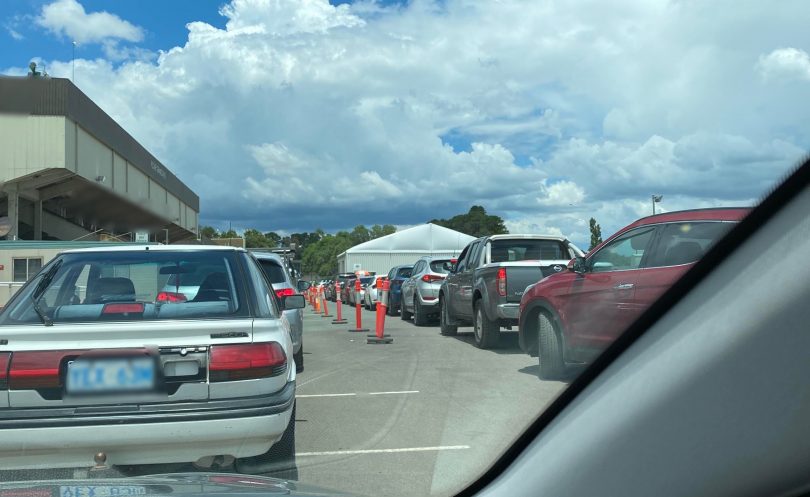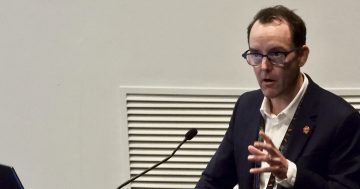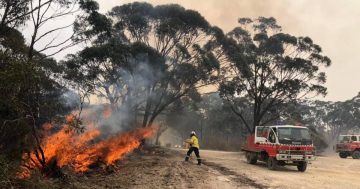
Testing times. Faith in public administration has suffered. Photo: Madeleine Mackenzie.
If there is one thing that the pandemic has highlighted, it is a lack of risk management from government, something you would expect from the body charged with national security in all its forms.
The list of fails is long and growing, from all-the-eggs-in-one-basket approach to acquiring vaccines to the stroll out (“it’s not a race”), and more recently, the testing services and hospitals being overwhelmed, the unofficial lockdown hurting the economy, the empty shelves and staff shortages, and even the embarrassing Novak Djokovic visa debacle.
This follows the bushfires disaster where the federal government seemed slow to comprehend what it needed to do.
We can blame the politicians, and probably will come election time, but there seems to have been no thinking through on a practical administrative level of the consequences of taking certain decisions, such as reopening the economy, eschewing lockdowns as the Omicron wave approached our shores and living with COVID.
Governments, having exhausted the financial resources needed to sustain a lockdown, or at least not wanting to spend any more than necessary, can be forgiven for not wanting to shut everything down, something few really wanted to hear anyway.
But they, and we’re talking mainly NSW and the Feds here, were too keen to believe their own propaganda. Scott Morrison said this week the government underestimated the severity of Omicron and was taken by surprise.
Really? Nobody in the room raised any red flags? Despite plenty of warnings from the WHO, industry, unions, those at the health coal face?
Getting by on hope and prayer is not risk management.
Is there an ideological blind spot here that mainly afflicts conservative governments, but has been not confined to them, that sees private sector good, public sector bad, leading to a general running down of public service capability – in practical capacity, corporate knowledge and the will to insist that its advice be heeded?
Has the last few years been the culmination of a now ingrained resistance to committing government resources to a mounting crisis until it is too late?
Public sector chiefs will say this is nonsense and that the APS, in particular, has achieved remarkable feats in its COVID response over the past few years, but the questions remain over its ability or willingness to anticipate known risks and this can be extended to climate change as well.
They will deny capability has been eroded at the same time as the Australian Public Service Commission embarks on an overhaul of training, creating a new central Academy to grow skills across the APS.
They will argue government does not need to do everything as consultancies and private companies grow fat off outsourcing contracts and policy is executed in a fragmented, short-term way without regard to the whole picture or the long-term consequences.
In an emergency, people do not look to the private sector or entrepreneurs for answers. They want government to be on the job, and when it fails to deliver, what follows is a crisis of confidence in our society and each other.
In short, people get frightened when they see government failing.
Mr Morrison may deflect by saying how well Australia has done compared to the rest of the world, but that can’t deny the reality of what is happening around us.
The past few years should be a wake-up call to those who believe in good government and a public sector that can deliver the independent policy work and services that Australians deserve.
If Anthony Albanese manages to get Labor back into government, reasserting the notion of the public good and the machinery to make it happen would be a worthy goal.
A constructive inquiry into the pandemic response would be a good way for the public sector to learn the lessons of these testing times. If Tony Abbott can get away with setting up a Royal Commission into an insulation scheme, then one for an event like the COVID-19 pandemic should be a no-brainer.
Original Article published by Ian Bushnell on Riotact.












